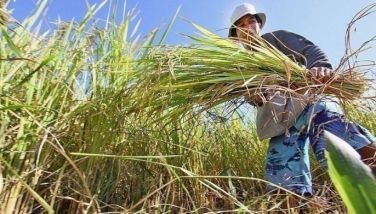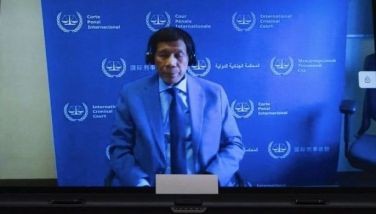PhilMech, MSC source flour from breadfruit
MANILA, Philippines - The Philippine Center for Postharvest Development and Mechanization (PhilMech) and the Marinduque State College (MSC) have successfully established the use of breadfruit as a flour source.
The use of breadfruit as a flour source can be considered a breakthrough because most breadfruit trees in the Philippines remain unutilized.
To date, PhilMech and MSC have successfully established an enterprise in the province of Marinduque to process breadfruit.
A laboratory has also been built that is conducting research on the processes needed to make breadfruit into food products.
“This successful undertaking of PhilMech, in partnership with MSC, can pave the way for the establishment of more breadfruit-based small to medium enterprises in the various parts of the Philippines, which can help increase food supply in the provinces,” said PhilMech executive director Rex L. Bingabing.
He added that since the breadfruit tree or “rimas” is largely unutilized in many parts of the country, it is viable to utilize the tree to make food products.
In fact, in many parts of the country where the breadfruit tree thrives, its fruits are left to fall to the ground and rot. But ever since PhilMech and MSC were able to demonstrate the usefulness of the breadfruit tree in producing flour, many people in Marinduque began to put value on the its fruits, and have started to take care of existing trees and plant more.
“Breadfruit is part of the UN [United Nations] program to fight poverty. I think the program is to encourage each person to raise 20 trees. And when these trees already bear fruit, we could fight poverty,” said Dr. Carlos J. Andam, head of the propagation of the breadfruit and considered as the father of breadfruit in the college.
One of the most important technical assistance extended by PhilMech to MSC for the establishment of a breadfruit enterprise in Marinduque is the provision of multi-commodity solar tunnel driers (MCSTDs) which can dry “rimas” fruits in six hours compared to the nearly seven hours when dried directly under the sun.
Also, “rimas” fruits dried using the MCSTDs had a flour recovery of 21.86 percent as compared to the 17.21 percent from fruits dried under the sun. And finally, “rimas” fruits dried using the MCSTDs had better quality and were cleaner since these were not exposed to open air during the drying process.
Based on findings of PhilMech and MSC, flour from breadfruit could substitute 50 percent to 100 percent of traditional wheat flour when making some bakery products like cupcakes, waffle, cookies, polvoron and even cake.
PhilMech said that its findings on the project could help establish MCSTD-based enterprises in various parts of the countries in cooperation with state universities and colleges (SUCs), since the solar tunnel driers can also be used to dry a host of commodities like fish, and tropical fruits and vegetables.
- Latest






























